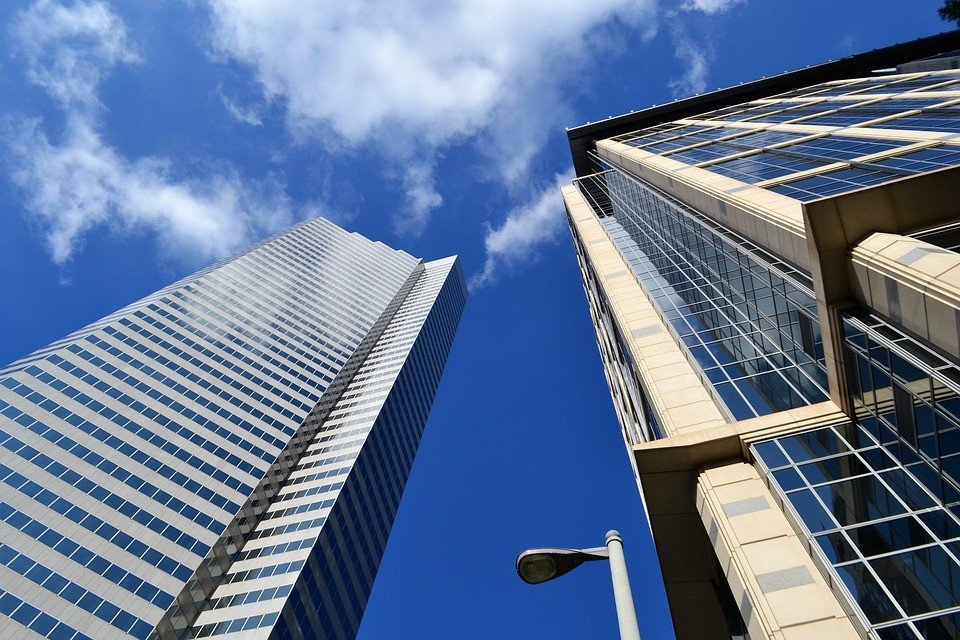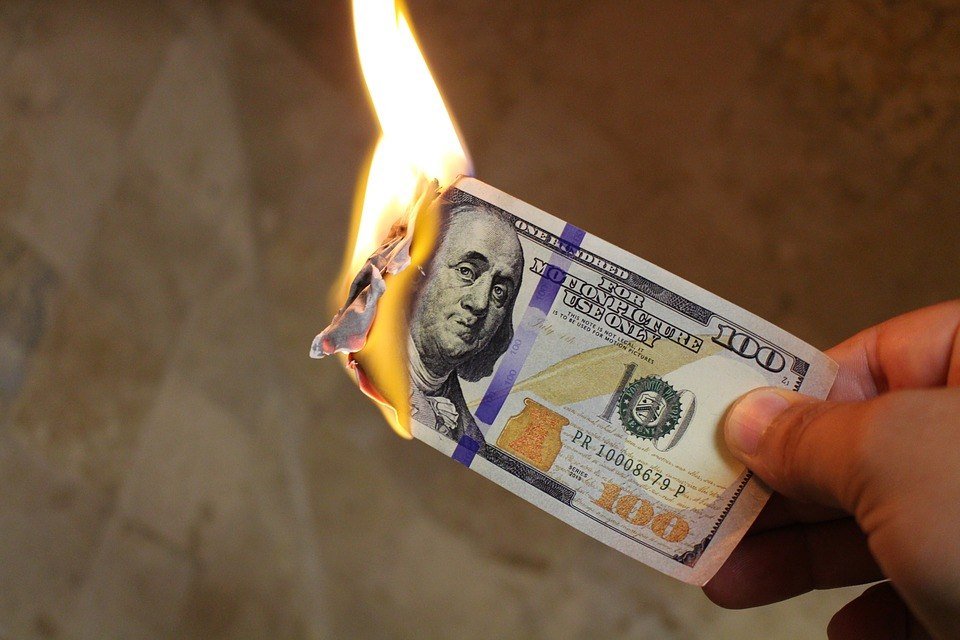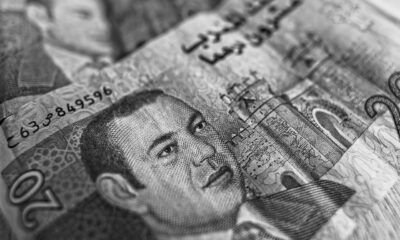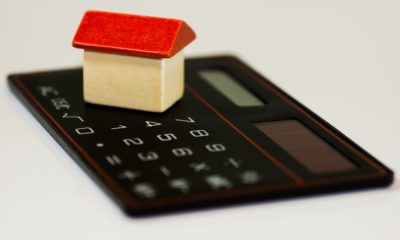Business
10 mistakes to avoid when buying a commercial property
Planning to buy your first property soon? In this article, we discuss 10 errors that you can prevent from doing when investing in real estate.

In November of 2016, after six months of back and forth negotiations, I purchased a 19,000-square-foot mixed-use commercial building in New York. At the time, I thought it was an excellent investment, and it would add a significant amount of passive income to my portfolio. Unfortunately, this passive income did not transpire.
Two factors contributed to my failure with this investment: ego and blind spots.
To be effective, don’t let the need to be right more important than the need to find out what is true. I let my ego get in the way of assessing the investment. In this article, I want to focus on the 10 “blind spots”, a.k.a. the 10 mistakes.
1. Wrong part of the cycle
Who knew there were four market phases? My assumption, as that of most newbie investors, was that real estate was only appreciating, and if you bought real estate and held tight for the long term, you would be okay.
I purchased the asset during the hyper supply phase, and if I had purchased it correctly, things would not have been so painful. If I had waited around a year, I could have purchased the building at a significant discount for a multitude of reasons that we will discuss throughout the article.
In many markets across the U.S., we have reached this phase of the market. There is exuberance, money is flowing to real estate and cap rates have compressed to unattractive yields. It doesn’t mean that deals have vanished. Investors have to be more concerned with buying on actuals and underwriting their deals conservatively and with significant value-add opportunities.
2. Ignorant of market and demographics
This mistake could have easily been my biggest mistake, but if I had bought the asset in a buyer’s market, many of my sins would have been forgiven or at least diminished. It is apparent in the past few years that many investors have made money in spite of their many mistakes. Every rising tide helps all ships, and cap rate compression helps those who overpaid.
I lived only 30 minutes from the property, and I would classify it as investing in my backyard. Incredibly, I knew next to nothing about my backyard when it came to investing. This is a huge mistake for new investors. Just because you feel comfortable about the asset being in their market does not guarantee success.
I had no idea what metrics to look for, or how to use the metrics to rank the market. What was job growth, population growth, tenant laws, unemployment, etc., etc., etc.? I learned the lesson the hard way, and when I decided to invest outside my market, I learned very quickly how to analyze a market.
3. Not knowing the rents and property values
Cap rate, cash on cash return, debt coverage ratio, huh? I wish I could tell you what a cap rate was or how to calculate one before I bought the building, but I would just be lying to you. If anything good came out of this purchase (a couple of things did), I took my education seriously and learned how to underwrite a deal and focus on value-add opportunities.
I had no idea what the market rate was for commercial leases, what buildings were selling for in the market or what the outlook was for the market. I failed miserably at valuing the asset, and it led me to vastly overpay for the property.
4. Unfamiliar with the asset type
Running a multifamily is vastly different than operating a mobile home park. I had experience with rentals but was completely unprepared for dealing with retail, industrial and office tenants. My lack of experience with commercial real estate affected all three legs of our framework—buy right, manage right and finance right.
I tell all beginning investors the first thing that needs to happen is that you need to focus on a niche and concentrate all of your efforts into mastering that niche. I am partial to multifamily, but real estate offers so many other niches, such as fix and flip, single family homes, mobile home parks, medical, industrial, just to name a few.
5. Bad negotiation
I was a terrible real estate negotiator and thought that price was the only factor when negotiating a deal. I wish I had focused on the seller’s motivation to part ways with the property. Instead, I made it known how desperate I was to buy the property.
6. Fell in love with the property
This was a huge mistake for me, and for most first time investors. Fall in love with the numbers, and everything else will fall into place. I was impressed with the looks of the property, the prestige, and imbuing emotion into the decision making process. This is not residential real estate, where the view matters. Net operating income rules in a commercial real estate, and base all of your purchases on actual numbers, not on how the property makes you feel.
Full disclosure: I still fall into the trap of falling in love with a property, but I am quickly snapped back to reality by thinking about this purchase and by two smarter partners. If you find yourself making excuses about bidding higher than your strike price, take some time out to reassess your underwriting, and refer back to this mistake.

If you are bidding more than the actual price of your potential property, you may want to recheck your priorities first. (Source)
7. Overspent on repairs
When I purchased my first multifamily property, a four-unit in New York, I rehabbed the property as if I was going to move in it myself. We built what I now refer to as the Great Wall Of Mahopac, (the town where the property is located) replaced the entire roof, blacktopped the entire driveway, and performed countless other low generating value-adds.
The problem was not the over fix. The problem was twofold: Number one, I drastically underestimated the cost of repairs, and two, I was repairing items that would not lead to additional revenue. Try renting an apartment that is constantly leaking or retaining walls that are about to come crashing down on your tenants.
You think I would have learned my lesson. NOPE! I committed the same mistakes on the commercial deal as I did on this small multifamily. I now have been a part of building two great walls. They look great, but I probably should have tried to find a less expensive alternative.
8. No experience with commercial leases
I had no idea what a commercial lease contained, let alone how to negotiate one. What did I do? What most other broke investors do! I went online and downloaded a free commercial lease. My father taught me you get what you pay for, and in this instance, he was dead right.
My next step was to contact an attorney and draft a proper lease for each tenant. It took me a while to get used to the language in the lease, the terms, the negotiation tactics and how to market to commercial tenants. It was a terrific learning lesson that I wished I had learned before investing in the asset.
9. Failed miserably with legal due diligence
I could write an entire article on all the mistakes that I made during the legal due diligence. Let me highlight them for you so you can avoid these costly mistakes:
– Office unit that was being utilized as an apartment (illegal apartment)
– No active commercial fire alarm system (not even smoke detectors!)
– Non-functioning water treatment system. Not in compliance with the board of health
– Several tenants did not have Certificates of Occupancy for their businesses
– Tenant was illegally storing materials in space
– Tenant was using space as an apartment (separate from the first mistake)
– Tenant was late on rent payments
These are just some of the mistakes that were made when I bought the property. What angered me the most was that the town and the board of health were both aware of the gross negligence of the former owner. They allowed him to maintain the property in this condition. Once I took over, all of these issues came to the forefront. The town tightened up their inspection policies and added additional “fees” to the process. The lesson here: Buyer beware! Once you buy it, it’s your problem.
If I had any experience, I would have demanded that the seller rectify all of these issues, or I would have demanded a credit to fix all of the problems. Instead, I took over the property with all of these problems, and I had to tackle them one at a time. I would recommend any investor to hire an experienced real estate attorney who can help you navigate the due diligence process.
10. Did not know true expenses
This has become Jake’s pet peeve and the downfall of countless newbie investors. I had no idea how much the operating expenses would be for this property and was shocked at the amount of money it took to run the property. If there is nothing else you remember from this article, remember this: Learn how much it will cost per unit to run your property, and stick to that number when you underwrite a deal.
In our Knoxville, TN, market, it costs us around $4,300-$4,500 per unit in expenses to run a property. The vast majority of sellers will include on their pro forma half that amount in expenses, and an inexperienced buyer will underwrite the deal with a low expense number, thus inflating the NOI and end up overpaying. If you do not know what it costs to run a property in the market, call a couple of bankers or mortgage brokers and ask them what they are underwriting expenses when lending on a deal.
I hope that this article will steer you away from the avoidable mistakes that I made. The most important lesson that I learned from this deal was that “No deal is better than a bad deal.”
—
DISCLAIMER: This article expresses my own ideas and opinions. Any information I have shared are from sources that I believe to be reliable and accurate. I did not receive any financial compensation for writing this post, nor do I own any shares in any company I’ve mentioned. I encourage any reader to do their own diligent research first before making any investment decisions.

-

 Impact Investing2 weeks ago
Impact Investing2 weeks agoEnfinity Launches First Solar Plant in Italy with Microsoft
-

 Crypto16 hours ago
Crypto16 hours agoBitcoin Wavers Below $70K as Crypto Market Struggles for Momentum
-

 Markets1 week ago
Markets1 week agoSilver Dips Sharply, While Gold Gains Amid Mixed Stock Market
-

 Crowdfunding2 weeks ago
Crowdfunding2 weeks agoEvenFi Launches Run-Off Service to Protect Investors as Crowdfunding Platforms Exit

























You must be logged in to post a comment Login